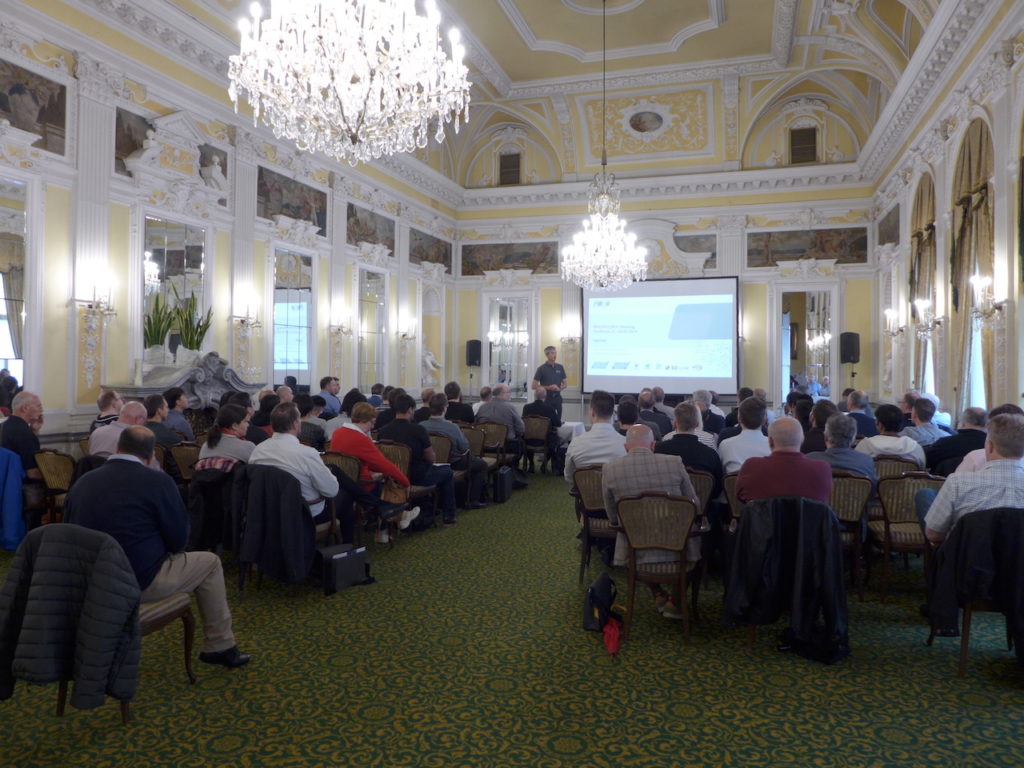Since the inception of PROFIBUS and PROFINET International (PI), one of the guiding principles has been to ‘think globally, act locally’. What this means is, on the one hand, our technologies are centrally developed and standardized worldwide. On the other hand, a vibrant decentralized community exists to offer immediate localized support.
PI is the largest automation community in the world with over 1,700 member companies working closely together, organized in different Regional PI Associations (RPAs). For a vivid exchange of information, face to face meetings are essential from time to time. RPA chairmen as well as members of the different PICCs, PITCs, and PITLs gathered in Innsbruck, Austria, for our 31stPI Meeting
Five days were filled with technical updates, for example on Time Sensitive Networking (TSN), OPC Unified Architecture (UA), and Advanced Physical Layer (APL). Meetings and presentations also included:
- PROFINET Certification and Tester Training
- PROFIBUS System Designer Training
- Lively discussions, of course
The icing on the cake was the picturesque city of Innsbruck as a backdrop. After all, how often do you get to work in a baroque meeting room in a heritage building?
For those of you not yet familiar with the different roles and entities within PI, here is an overview:
Regional PI Associations (RPAs)…
…provide a local point of contact and act as a liaison with the global PI organization. With PI’s technologies standardized worldwide, RPAs provide local support to manufacturers for fast and efficient service. Each RPA is a non-profit and independent entity. This ensures access for all interested parties since PI’s global technologies are open and neutral. Every independent RPA maintains a Quality of Service (QoS) Agreement to ensure that it provides the best possible support at the local level.
PI Competence Centers (PICCs)…
…are centers of technical expertise and work closely with the RPAs. Offering technical support and supporting first-time developers of PROFIBUS, PROFINET and IO-Link devices and systems is the everyday work of a PICC.
PI Training Centers (PITCs)…
…support developers and users in learning about and using PROFIBUS, PROFINET, and IO-Link. PITCs deliver standardized educational sessions aimed at raising the knowledge level of engineers and technicians in several important areas of PROFIBUS and PROFINET. Successful trainees are awarded certified engineer or installer status. PICCs and PITCs are subject to a QoS Agreement administered by PI to ensure the technical excellence of the service they deliver.
PI Test Laboratories (PITLs)…
…are accredited by PI, they offer certification test services. Users expect a high level of interoperability based on qualified products from their suppliers. To manage this, PI has established qualified test and certification procedures for product interfaces for its technologies. Based on globally standardized conformance and interoperability test procedures, PITLs issue qualified test reports.
Share our vision for automation and contact your local RPA to find out how you can get involved with the PROFIBUS, PROFINET, and IO-Link technologies.





 Fritjof Klasen
Fritjof Klasen